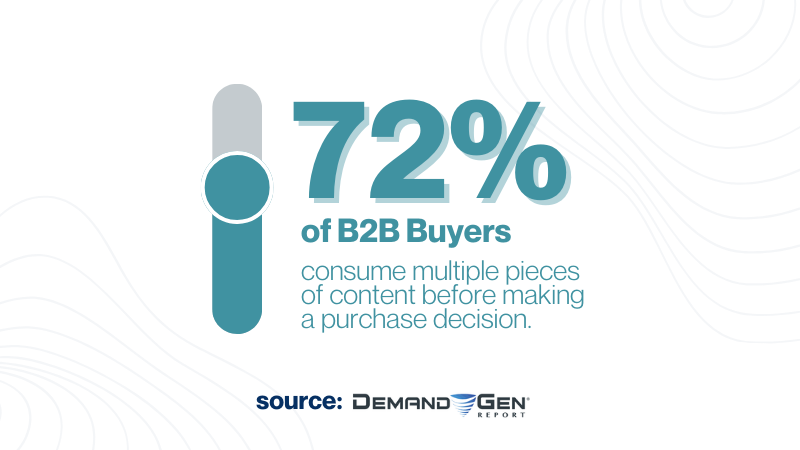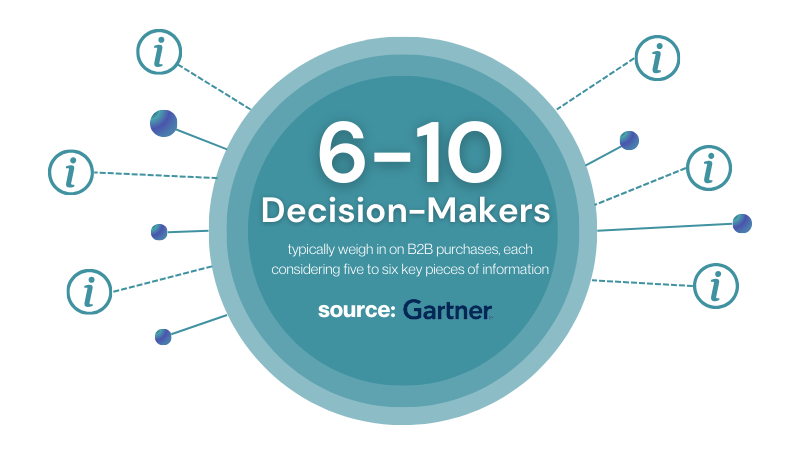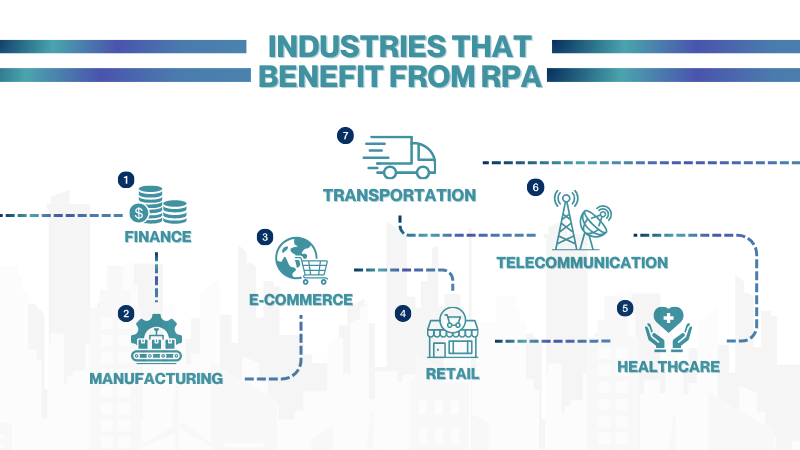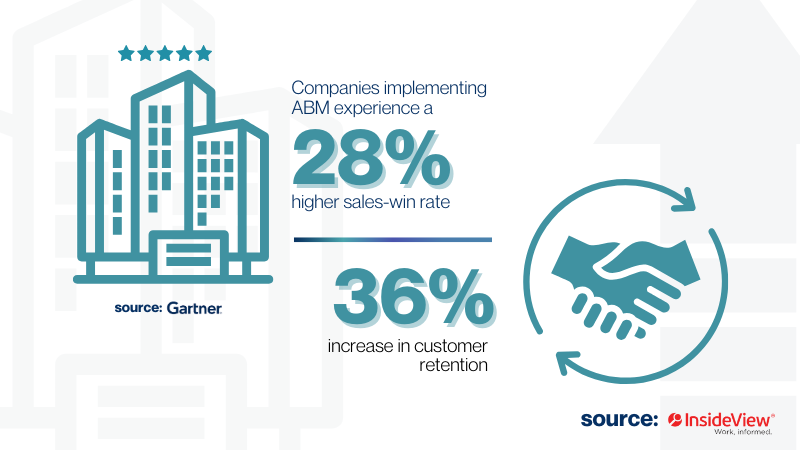Businesses depend on huge amounts of data to support core processes and reach targets. B2B marketing processes move at lightning speed, and teams must analyze data quickly to uncover insights and stay ahead of the competition.
When teams handle large datasets manually, errors and inefficiencies slow decision-making. Robotic Process Automation (RPA) improves speed and accuracy for better marketing execution.
What is RPA?
RPA is a software technology that creates and manages bots that mimic human interactions with digital systems. These bots can read screens, enter data, navigate systems, and perform set tasks accurately.
It operates faster and more consistently than humans, eliminating the need for breaks and maintaining high productivity levels around the clock. More than improving efficiency, it allows employees to focus on more complex, value-added tasks.
Why is RPA the fastest-growing software?
RPA transforms business operations by improving efficiency, reducing costs, and integrating smoothly with existing IT systems. Its rapid adoption comes from its ability to streamline processes with minimal disruption, making it a valuable tool for businesses looking to optimize operations.
Organizations across finance, customer service, marketing, and HR use RPA to increase capacity, speed up workflows, and minimize errors. For CFOs, it delivers quick ROI with lower upfront costs, while IT leaders appreciate its ability to modernize processes without requiring major system changes. Its user-friendly, low-code approach enables teams to create simple automation, making it a practical and scalable solution for long-term business growth.
As the market is expected to grow from $1.23 billion in 2020 to $12.22 billion by 2029, its potential to revolutionize business processes is becoming more apparent. However, successful implementation requires careful planning, with businesses assessing their specific needs and identifying tasks suited for RPA automation.
How RPA Transforms Business Operations?
1. Cutting Costs and Boosting Efficiency
RPA reduces operational expenses by 30% by running continuously without downtime. By automating repetitive tasks, businesses can lower labor costs and enhance efficiency. While there is an initial investment in infrastructure, maintenance, and licensing, the long-term savings and quick return on investment make automation a smart financial move.
2. Maximizing Productivity and Accuracy
Automation accelerates task completion, allowing businesses to accomplish more in less time. By eliminating human errors, RPA improves accuracy, ensuring consistent and high-quality results. Employees can shift their focus to customer engagement and strategic initiatives rather than routine tasks, leading to better work quality, stronger customer relationships, and an improved brand reputation.
3. Delivering Reliable and Actionable Insights
RPA provides accurate, error-free data that enhances decision-making and operational execution. By ensuring consistency across all processes, automation eliminates discrepancies and improves performance. Real-time analytics help businesses refine strategies and drive better outcomes.
4. Seamless Integration with Existing Systems
RPA streamlines workflows across departments without requiring a complete system overhaul. It integrates effortlessly with legacy platforms like CRM, email, and financial systems, eliminating the need for costly software upgrades. Unlike API integrations, which can be expensive and rigid, RPA offers a flexible, cost-effective solution to modernize outdated systems.
5. Improved Customer Experience
By automating routine customer interactions, RPA speeds up response times and minimizes errors. It efficiently handles large inquiries, provides 24/7 support, and improves customer satisfaction. Faster, more accurate service strengthens brand reputation and boosts customer loyalty.
With RPA, businesses can enhance efficiency, reduce costs, and improve employee and customer experiences while ensuring seamless integration with existing systems.
RPA Lead Generation Challenges
Generating leads for RPA solutions isn’t as simple as running ads or sending mass emails. Traditional marketing often fails because buyers require in-depth education, clear ROI justification, and customized solutions.
A broad, one-size-fits-all approach doesn’t address the complex decision-making process involved in automation investments. To succeed, companies need a strategic, targeted approach that speaks directly to their prospects’ unique needs and pain points.
1. RPA Buyers Require Education
Traditional marketing—billboards, print ads, and broad digital advertising—struggles to generate leads for RPA. These methods don’t provide the depth of information businesses need to understand how RPA fits into their operations.
Many decision-makers are unfamiliar with RPA and hesitant to adopt it without clear insights. Employees may also resist automation due to uncertainty about how it will impact their roles. Without proper education, businesses delay adoption, limiting the potential benefits of automation.

Studies show that 72% of B2B buyers consume multiple pieces of content before making a purchase decision. Generic ads fail to address their concerns. On the other hand, detailed content such as whitepapers, case studies, and B2B events like tradeshows and webinars help build trust and confidence.
Successful RPA providers take a consultative approach rather than pushing a product. Engaging prospects in meaningful discussions and demonstrating how automation solves specific challenges is far more effective than traditional marketing. Prioritizing education over promotion is key to driving awareness and adoption.
2. Longer Sales Cycles
Organizations face complex and time-intensive RPA buying decisions due to two main factors. First, they must thoroughly evaluate how automation will integrate with their current systems and workflows. Second, aligning multiple departments on the decision proves challenging, as each department has priorities and concerns.
Since RPA impacts various departments, decision-makers must consult each stakeholder throughout the process. These teams prioritize aspects, from technical feasibility to cost efficiency, which can slow progress as they assess risks and benefits.
Consensus takes time as each department assesses ROI and impact. Traditional marketing falls short by lacking the detailed insights needed for informed decisions.
Slow sales cycles? Callbox connects you with key decision-makers faster.
What do you want to learn?
3. Highly Targeted Decision-Makers
Reaching RPA buyers requires a strategic approach since CIOs, CTOs, and operations managers drive purchasing decisions. Broad marketing efforts often fail because B2B buying isn’t a one-person process—it involves multiple stakeholders with different priorities.

A study reveals that 6-10 decision-makers typically weigh in on B2B purchases, each considering five to six key pieces of information. To win their buy-in, you must actively engage each stakeholder, speak to their specific concerns, and demonstrate how RPA delivers value across departments. Focusing on just one decision-maker limits your impact—success comes from aligning your message with the needs of the entire buying group.
RPA purchases involve multiple stakeholders—are you reaching them all? Callbox’s database and targeted outreach ensure you engage the right decision-makers at the right time. Start Your Campaign Now!
4. Content Marketing and ABM Perform Better
Generic sales pitches no longer cut it—buyers expect solutions that directly address their unique challenges. Digital strategies like whitepapers, webinars, and personalized outreach are far more effective in capturing interest and building trust.
Account-Based Marketing (ABM) thrives on targeted content that educates stakeholders, tackles objections, and guides prospects through the buying journey. By delivering personalized insights through strategic content marketing, businesses strengthen relationships, accelerate decision-making, and drive higher conversion rates.
Industries that Benefit from RPA

RPA companies thrive by streamlining business operations, but attracting the right clients requires a strategic approach. As it identifies and automates high-impact tasks, lead generation efforts should focus on the most promising opportunities. By targeting businesses with repetitive, rule-based processes that demand high manual effort such as data entry, data extraction, and transaction processing, these companies can position themselves as trusted partners in efficiency and cost reduction.
Effective lead generation combines market insights, tailored messaging, and multichannel outreach to engage decision-makers seeking automation solutions. Technology-driven automation transforms industries by reducing manual effort, improving accuracy, and increasing efficiency. Companies can now focus on strategic goals while ensuring smoother operations. These key industries are leveraging RPA for maximum benefits.
Finance
RPA transforms finance by improving accuracy, efficiency, and compliance in data-intensive processes.
- Fraud Detection – RPA analyzes transaction patterns to detect suspicious activity, improving security and minimizing fraud risk.
- Accounts Payable – Tasks such as data extraction, invoice matching, approvals, and payment processing become faster and more accurate.
- Financial Planning – By processing large datasets, RPA enhances trend analysis, financial forecasting, and strategic decision-making.
Manufacturing
Beyond factory automation, RPA optimizes operations, ensures quality control, and enhances supply chain management.
- Bill of Materials Management – Ensures accurate data maintenance, preventing disruptions due to discrepancies.
- Maintenance Scheduling – Prevents equipment breakdowns and keeps production running efficiently.
- Quality Control – Automates defect detection and maintenance schedules, ensuring compliance with quality standards.
E-commerce
To keep pace with online shopping growth, e-commerce businesses leverage RPA for operational efficiency.
- Customer Service – RPA bots handle inquiries related to orders, shipments, and returns, enhancing customer satisfaction.
- Return Processing – Speeds refund approvals and enhances accuracy in return handling.
- Inventory Management – Automates stock tracking to optimize inventory levels and resource management.
Retail
- Price Management – Maintains consistent pricing and promotions across multiple platforms.
- Inventory Tracking—RPA ensures real-time inventory updates and replenishment to balance supply and demand. Retailers use it to automate logistics, track inventory, and personalize customer interactions.
- Personalized Shopping Experience – Analyzes customer behavior to drive targeted marketing campaigns and boost sales.
Healthcare
RPA streamlines administrative processes, allowing healthcare professionals to focus more on patient care.
- Data Analysis – Enhances data collection and analysis for faster, more informed diagnoses and treatments.
- Appointment Setting and Sales Meetings – Automates booking, reminders, and follow-ups, improving patient engagement.
- Patient Registration – Automates patient intake, medical history verification, billing, and claims processing.
Telecommunications
RPA streamlines administrative processes, allowing healthcare professionals to focus more on patient care.
- Data Analysis – Enhances data collection and analysis for faster, more informed diagnoses and treatments.
- Appointment Setting and Sales Meetings – Automates booking, reminders, and follow-ups, improving patient engagement.
- Patient Registration – Automates patient intake, medical history verification, billing, and claims processing.
Transportations
RPA improves logistics, shipment tracking, and invoice processing for greater productivity and accuracy.
- Cargo Management – Manages route optimization, shipment tracking, and customs processing efficiently.
- Invoice Management – Automates billing and payment tracking for improved financial operations.
- Shipment Tracking – Provides real-time updates to enhance customer communication and satisfaction.
By integrating RPA, businesses across various industries enhance efficiency, reduce operational costs, and improve service quality. As automation continues to evolve, companies that adopt RPA will gain a competitive edge in their respective markets.
How RPA Companies Can Generate High-Quality Leads
Here are some ways how you can generate leads and improve sales for your RPA services:
Multichannel Marketing
Success depends not just on innovation but also on strategic customer connections. Industries today must keep up with trends and reach customers in real time through the devices and channels they use most.
A strong multichannel outreach strategy—email outreach, cold calling, and social media—ensures businesses connect with potential buyers immediately, increasing engagement and conversion rates.
Account-based Marketing
ABM starts by identifying high-value accounts and engaging key prospects with personalized, real-time content rather than filtering leads later. This approach focuses marketing on the right customers, thereby strengthening connections and improving the quality of conversions.

This strategy nurtures trust and drives measurable results by delivering the right message to the right audience at the right time. Companies implementing ABM experience a 28% higher sales-win rate and a 36% increase in customer retention, leading to stronger relationships and greater lifetime customer value.
Discover how an IT Services and Software Development Company generated 148 qualified leads with Callbox’s ABM strategy
Publish High-Quality Content Online
Content marketing enables RPA companies to attract qualified leads, build trust, and expedite the sales cycle through relevant and insightful information. By leveraging various formats such as blogs, case studies, whitepapers, and email newsletters, RPA businesses can effectively address key concerns, including:
- ROI: Demonstrating the financial benefits of automation.
- Integration: Showcasing how easily RPA can fit into existing systems.
- Efficiency: Highlighting improvements in operational performance.
This educational approach not only clarifies the value of automation but also reveals its transformative effects on business operations.
In 2023, 58% of B2B marketers reported using content marketing strategies to drive sales, emphasizing its vital role in revenue generation. Regularly publishing high-quality content empowers RPA firms to position themselves as industry leaders while nurturing relationships with potential buyers throughout their purchasing journey. These efforts not only shorten sales cycles and increase conversion rates but also cultivate stronger customer relationships.
Related: Why Keeping Customer Relationships for Your Business is Essential
Vendor/Reseller Partnership
Reseller channel partners are third-party companies or individuals who promote and sell products or services on behalf of a business. Acting as an extension of your sales team, they introduce your offerings to their customer base, helping you reach markets that may otherwise be difficult to access.
However, a reseller partner program is only as effective as its partnerships. Strong collaborations expand market reach and drive revenue, but resellers must have a clear understanding of your automation solutions, target audience, and sales strategy to succeed.
Resellers play a crucial role in bringing RPA solutions to the right customers. By aligning technology with business needs, they help prospects understand the value of automation, customize messaging for different industries, and accelerate deal closures. Providing resellers with comprehensive training and resources empowers them to simplify adoption and boost customer relationships.
Data-driven marketing
Data-driven marketing strengthens RPA sales by making sure that the right prospects are targeted at the right time. By collecting and analyzing customer data from CRM systems, website analytics, and social media, businesses gain valuable insights into buyer behavior, preferences, and engagement patterns. This enables precise audience segmentation, allowing marketers to focus on high-potential prospects and tailor messaging that directly addresses their pain points.
Drive More Sales with a Smarter RPA Marketing Strategy
What do you want to learn?
Predictive analytics further refines this approach by identifying leads most likely to convert, helping sales teams prioritize follow-ups and allocate resources effectively. Automated lead nurturing through personalized emails and targeted content maintains consistent engagement, keeping RPA solutions top of mind. Additionally, performance tracking allows businesses to measure campaign effectiveness, refine strategies, and continuously optimize messaging for better conversions.
Hire Lead Generation Experts
A lead generation agency brings specialized expertise and proven strategies, leveraging cross-industry experience to refine marketing approaches and ensure a focus on results. These agencies set S.M.A.R.T. goals and use tools like HubSpot to optimize their impact, manage strategy, lead qualification, and outreach to deliver a consistent flow of high-value prospects.
By establishing a strong online presence, and targeted resources, they enhance visibility and convert visitors into qualified leads. While an internal team can handle lead generation, outsourcing these efforts streamlines the process and drives better outcomes with greater efficiency, ensuring businesses engage with the prospects at the right time for easier deal closures
Breakthrough RPA Sales Challenges with a Reliable Lead Generation Partner
Marketing RPA is not just about showcasing innovative technology; it’s about forging connections with the right prospects, understanding their unique needs, and delivering solutions that enhance efficiency. While leveraging data, targeting new markets, and optimizing your sales pipeline are essential for driving growth, partnering with a trusted lead generation provider can provide a powerful advantage.
Outsourcing your lead generation for RPA can elevate your sales efforts. By breaking through adoption barriers with a strategic blend of outbound and inbound lead generation, appointment setting, and a multi-touch, multi-channel approach, you can effectively streamline your prospecting and maximize conversions.
As RPA adoption continues to rise, standing out in a crowded marketplace demands a proactive strategy that connects with prospects at every touchpoint. Let Callbox Australia help you transform leads into lasting customers while you focus on what you do best—delivering value through automation.
Embrace the opportunity for growth and efficiency by partnering with us at Callbox. Together, let’s achieve faster, smarter, and better sales results.













